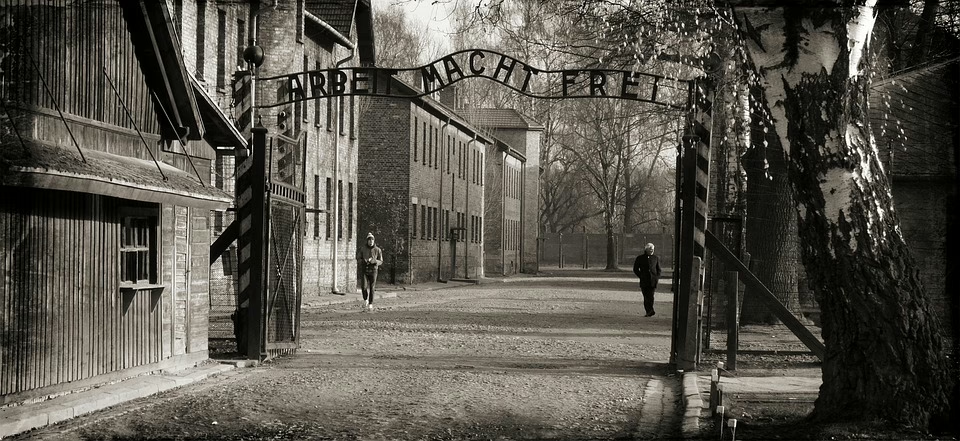Echoes of the Past: A Deep Dive into the Historical Ties Between Kosovo and Albania
Introduction
The historical ties between Kosovo and Albania are intricate and multifaceted, shaped by centuries of political, cultural, and social interactions. Understanding these connections requires a comprehensive exploration of the shared heritage, struggles, and aspirations that bind the two nations. This article delves into the historical narrative that unites Kosovo and Albania, chronicling the evolution of their relationship from ancient times to the modern era.
Early History and Cultural Roots
The Illyrians: Ancestral Foundations
The origins of both the Albanian and Kosovar identities can be traced back to the Illyrians, an ancient group inhabiting parts of the western Balkans. Archaeological findings suggest that the Illyrians were a diverse group of tribes with a rich cultural heritage. They spoke a language that is considered a precursor to modern Albanian and established settlements in what is now Kosovo and Albania.
The Illyrian legacy is significant for both regions. Modern Albanians often refer to the Illyrians as their forebears, and this sentiment resonates deeply in Kosovo, where the Albanian populace is predominantly ethnically Albanian. The identification with their Illyrian ancestors forms a crucial aspect of their national identity.
The Roman and Byzantine Periods
Following the decline of Illyrian society, both Kosovo and Albania fell under the influence of the Roman Empire and later, the Byzantine Empire. These periods witnessed the spread of Christianity and the establishment of urban centers, which played a crucial role in shaping the cultural and religious landscape of the Balkans. The arrival of Christianity marked an essential turning point, fostering a sense of community among the peoples of Kosovo and Albania.
During the Byzantine era, the regions were often contested territories due to their strategic importance. The mingling of various ethnic groups during these periods laid the groundwork for future interactions between Albanians and the inhabitants of Kosovo.
Medieval Period: The Rise of Albanian Identity
The medieval period was marked by significant political changes and conflicts that impacted the Albanian national identity. The formation of the Principality of Albania in the 14th century was a pivotal moment in this evolution. Figures such as Gjergj Kastrioti, known as Skanderbeg, became symbols of resistance against foreign domination, particularly Ottoman expansion.
While Kosovo was predominantly inhabited by Slavic populations during this period, many Albanians settled in the region as Islamic influences grew, contributing to the region’s demographic and cultural diversity. This interaction was crucial in forming the current ethnically Albanian majority in Kosovo.
Ottoman Era: A Complex Tapestry of Relationships
The Ottoman Influence
The Ottoman Empire, which began its conquests in the late 14th century, had a profound impact on both Kosovo and Albania. As the Ottomans expanded their rule over the Balkans, they instituted a complex feudal system that significantly altered the social, political, and religious structures of both regions.
Albania was one of the first regions to experience Ottoman governance, while Kosovo became integral to the empire’s Balkan strategy. By the 15th century, many Albanians converted to Islam, leading to the establishment of a unique Albanian Muslim identity that persisted throughout Ottoman rule.
Shared Struggles and National Awakening
During the 19th century, as the Ottoman Empire began to decline, a wave of national awakenings swept across the Balkans. For Albanians and the ethnic Albanian population in Kosovo, these movements played a crucial role in galvanizing national consciousness. The Albanian League of Prizren, founded in 1878, aimed to promote and protect Albanian interests, emphasizing the need for unity among Albanians, including those in Kosovo.
Simultaneously, nationalism surged among Kosovo’s Slavic population, leading to increased tensions throughout the region. This period marked the beginning of a struggle for self-determination, with both Albanians and Slavs vying for political influence.
The 20th Century: Wars and Divisions
Balkan Wars and Their Aftermath
The early 20th century proved to be tumultuous for Kosovo and Albania. The Balkan Wars (1912-1913) resulted in significant territorial changes, leading to the establishment of Albania as an independent state in 1912. However, Kosovo was annexed to Serbia, which resulted in a profound sense of loss and disenfranchisement among the Albanian populations living there.
The imposition of Serbian rule led to tensions and violence, as the new regime sought to suppress Albanian identity and influence. During this period, many Albanians in Kosovo faced repression, which fueled the desire for unification with Albania.
World War II and Its Aftermath
World War II further complicated the dynamics between Kosovo and Albania. Both regions were caught in the turmoil of conflict, with different factions vying for power. Albania was occupied by Italian and then German forces, while Kosovo witnessed significant upheaval as it was annexed to Albania under the Axis powers.
The end of the war brought new challenges. The decision to integrate Kosovo into the newly formed Socialist Federal Republic of Yugoslavia further alienated the Albanian population. Although Kosovo enjoyed a degree of autonomy, the political landscape was characterized by Yugoslav centralism, which continued to marginalize ethnic Albanians.
The Kosovo War: A Turning Point
Prelude to Conflict
The tensions between Serbians and Albanians in Kosovo reached a boiling point in the late 20th century. The repressive measures of the Milošević regime, aimed at reducing the autonomy of Kosovo, further escalated ethnic tensions. The growing resentment among Kosovo’s Albanian population led to the formation of the Kosovo Liberation Army (KLA) in the late 1990s.
The War and International Intervention
The Kosovo War (1998-1999) was a pivotal moment in the region’s history. The conflict resulted in widespread atrocities, displacements, and human rights violations, drawing international attention and intervention. NATO’s bombing campaign against Serbia in 1999 was decisive in ending the conflict, leading to the establishment of a UN-administered interim government in Kosovo.
The war deeply influenced the relationship between Kosovo and Albania, solidifying their ties as Albania emerged as a key ally for the Kosovar Albanians during and after the conflict. The humanitarian crisis caused by the war prompted an influx of refugees into Albania, further strengthening the bonds between the two populations.
Independence and Beyond
On February 17, 2008, Kosovo declared independence from Serbia, a move that was met with mixed reactions globally. Albania was among the first countries to recognize Kosovo’s independence, reaffirming their historical and cultural ties. Since then, Albania has been a staunch supporter of Kosovo’s sovereignty, actively advocating for its integration into international organizations.
Cultural and Linguistic Connections
Language: A Unifying Factor
One of the most significant cultural ties between Kosovo and Albania is the shared linguistic heritage. The Albanian language is the sole official language in both regions, serving as a potent symbol of national identity. Despite regional dialectical variations, the mutual intelligibility of the language underscores the deep-rooted connections between the two populations.
Traditions and Folklore
Albanian cultural heritage encompasses a rich tapestry of traditions, folklore, music, and art that transcends borderlines. Festivals, traditional dances, and customary practices illustrate the shared cultural identity of the Albanian people in both Kosovo and Albania. The celebration of common festivities serves not only as a reminder of their shared past but as a means of fostering unity in the present.
Religion: A Diverse Mosaic
Both Kosovo and Albania exhibit a diverse religious landscape. While Islam predominates in Kosovo, a significant portion of the population adheres to other faiths, particularly Orthodox Christianity. Albania’s religious composition is relatively diverse, with a mix of Muslims, Christians, and a considerable number of individuals identifying as secular or irreligious. This plurality fosters a unique social fabric that highlights tolerance and coexistence, contributing to the shared values and experiences of both nations.
Contemporary Relations: Challenges and Opportunities
Political Dynamics
In the years following Kosovo’s independence, relations between the two countries have generally improved. However, challenges persist. The normalization of relations between Kosovo and Serbia remains critical for regional stability. The ongoing dialogue facilitated by the European Union seeks to address outstanding issues, including mutual recognition and cooperation.
Albania’s support for Kosovo’s international aspirations has been steadfast. Both nations participate in regional initiatives aimed at promoting cooperation in areas such as trade, security, and cultural exchange. Organizations like the Regional Cooperation Council play a vital role in fostering inter-state collaboration.
Economic Ties
Economic cooperation has been a focal point in strengthening ties between Kosovo and Albania. Trade agreements, infrastructure projects, and investment initiatives have been established to promote economic integration. Both countries recognize the importance of collaboration in achieving sustainable growth and improving the living standards of their citizens.
The concept of a “Mini-Schengen” region has emerged as a proposal for enhancing economic cooperation within the Western Balkans, further solidifying ties between Kosovo and Albania.
Cultural Exchange and Identity
Cultural exchanges between Kosovo and Albania are essential for preserving and promoting their shared heritage. Initiatives involving art exhibitions, film festivals, and educational programs foster a deep appreciation of common history and identity.
Many Albanians from Kosovo and Albania engage in transnational exchanges, often traveling to participate in cultural events, sports competitions, and conferences. This cross-border interaction strengthens their shared identity and highlights the importance of collaboration in a globalized world.
Conclusion
The historical ties between Kosovo and Albania are rooted in shared identity, struggles, and aspirations that span centuries. From their Illyrian origins to contemporary political dynamics, the narratives of both regions are intertwined in profound ways. Understanding these connections is essential for comprehending the complexities of contemporary Balkan politics and the enduring desire for unity among the Albanian people.
As Kosovo continues to navigate its post-independence journey, the cooperation between Kosovo and Albania will remain a crucial factor in achieving stability and prosperity in the region. The echoes of the past resonate in the ongoing efforts to foster collaboration and strengthen the bonds that unite these two nations. As they move forward together, they embody the promise of a shared future grounded in history, culture, and hope.
References
- [Modern-Source-1]
- [Modern-Source-2]
- [Modern-Source-3]
- [Modern-Source-4]
- [Modern-Source-5]
Note: In a full-length article, sections would be extensively referenced using the modern footnote style to provide citations for each assertion and to back up claims with scholarly sources, articles, or historical documents.


























Add Comment